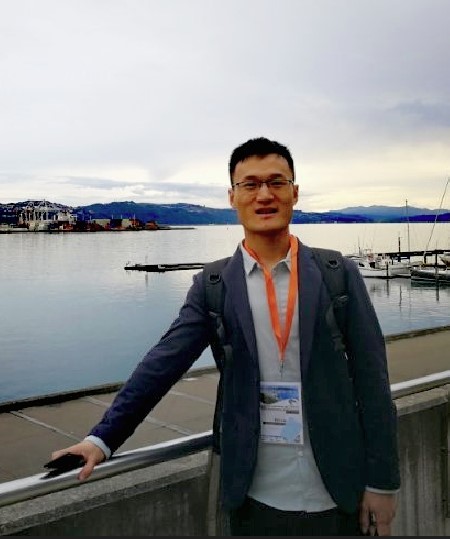

Speaker: Fei Liu, City University of Hong Kong
Date: 23 June 2025
Time: 4:00 - 5:00pm (Beijing Time, UTC+8) [Convert to your local time]
Zoom link: https://vuw.zoom.us/j/93516613732

Fei Liu is a Postdoc in Prof Qingfu Zhang’s group (http://optima.cs.cityu.edu.hk/) at the Department of Computer Science, City University of Hong Kong, Hong Kong. He received his BSc degree and MSc degrees from Northwestern Polytechnical University, China in 2017 and 2020, and Ph.D. degree from City University of Hong Kong, Hong Kong in 2025. His main research interests include computational intelligence, optimization, and their applications. Currently, he is working on Large Language Model for Algorithm Design (LLM4AD). He has published 10+ papers in the journal and conference including TEVC, ICML, KDD, AAAI, IJCAI. He has received Champion of the IEEE HK CI Postgraduate Student Research Paper Competition 2024, Second Price (only one) of the IEEE FLAME Competition 2024, Best Paper Nomination at PPSN 2024, Gold Award in the EMO2021 HUAWEI Logistic Competition, and Outstanding Master's Thesis by CSAA in 2020.
Algorithm Design (AD) plays a pivotal role in problem-solving across diverse domains. The emergence of Large Language Models (LLMs) has significantly advanced automation and innovation in this field. We first present a systematic review and taxonomy of the literature on algorithm design utilizing large language models. Next, we introduce Evolution of Heuristic (EoH), an evolutionary framework that integrates LLMs with Evolutionary Computation to facilitate automatic algorithm design. Additionally, we introduce LLM4AD, an open-source, user-friendly platform designed to support algorithm development with large language models. This platform aims to provide modalized tools, methodologies, and tasks, fostering further research and application in the field.
Speaker: Yue Xie, University of Cambridge
Date: 28 July 2025
Time: 10:00 - 11:00am (London Time, UTC+1) [Convert to your local time]
Zoom link: TBA

TBA
TBA
Speaker: Thomas Weise, Hefei University
Date: 29 September 2025
Time: 4:00 - 5:00pm (Beijing Time, UTC+8) [Convert to your local time]
Zoom link: TBA

TBA
TBA
Speaker: Sarah Thomson, Edinburgh Napier University
Date: 27 October 2025
Time: 10:00 - 11:00am (London Time, UTC+1) [Convert to your local time]
Zoom link: TBA

TBA
TBA
If you have any questions or queries, please email Yi Mei or Fangfang Zhang.
Go to TOP
Go to TOP